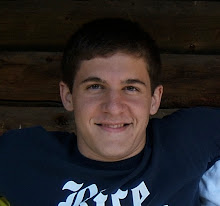As part of our time at DMH, Donna and I have started a research project. Since neither of us is particularly proficient in a lot of the medical terminology, doing a project exploring treatment options or something like that is simply not feasible. We also wanted to do something that would be both beneficial to the hospital and that would be useful for us as we return to the United States. To cap things off, we really wanted to work in pediatrics (ironically, since neither of us were too keen on pediatrics coming over here), simply because everyone in pediatrics has been enormously helpful to us.
Thus, after talking to Dr. Joshi, we came up with our project idea--examining the socioeconomic profile of the patients coming through Deenanath's Pediatric Intensive Care Unit (PICU), Neonatal Intensive Care Unit (NICU), and Hematoncology wards. Essentially, what we'll be doing over the next few weeks is interviewing the parents of the patients in the various wards and asking them about their backgrounds. What it boils down to is asking questions that would be unthinkable in the United States ("What is your monthly income?" "Is the treatment going to be difficult to pay for." "If so, how are you going to come up with the money for the treatment?"). Yet the doctors have all assured us that the patients won't mind any of the questions that we'd be asking. Sure enough, 20 interviews in, everyone has been more than happy to oblige and answer our questions (usually through one of the nurses acting as an interpreter).
Our goal through this project is to see whether there are any trends of how the people approach paying for their child's health care, especially when the procedures are extremely expensive (sometimes upwards of $10,000--this for a hospital in India that strives to provide affordable health care for as many people as possible), and in a country where health insurance is virtually non-existent. Do parents show any preference for particular children, such as being willing to pay more for the care of their son? Hopefully through this we can make recommendations to the hospitals in ways they can better reach certain parts of the populations to maximize the amount of need the hospital can provide for.
I'm quite certain that there will be plenty of stories that we'll gain from this, but here's just one. We talked to the father of one boy in the cancer ward, who is an engineer here. However, because his work requires him to be on site, he lost his job because he was tending too much time staying with his son at the hospital. He told us that he hoped that the chemotherapy would be done by October or November, or he would have to sell their house to pay for treatment. We'll surely come back to the United States with a better perspective on the pain that people have to go through and hopefully with an idea about how we can somehow do something about it.
Subscribe to:
Post Comments (Atom)

So does all of this make you want to practice medicine in a foreign country? Do the obstacles or unique challenges make you want to take them on, or give you better perspective for when you are here in the U.S. practicing medicine?
ReplyDeleteHappy 4th of July!
ReplyDeleteI think it's mostly for better perspective. I think I'd like to practice medicine abroad to some degree (perhaps as a short term medical missions trip or something along those lines), but I definitely want to practice in the United States.
ReplyDelete